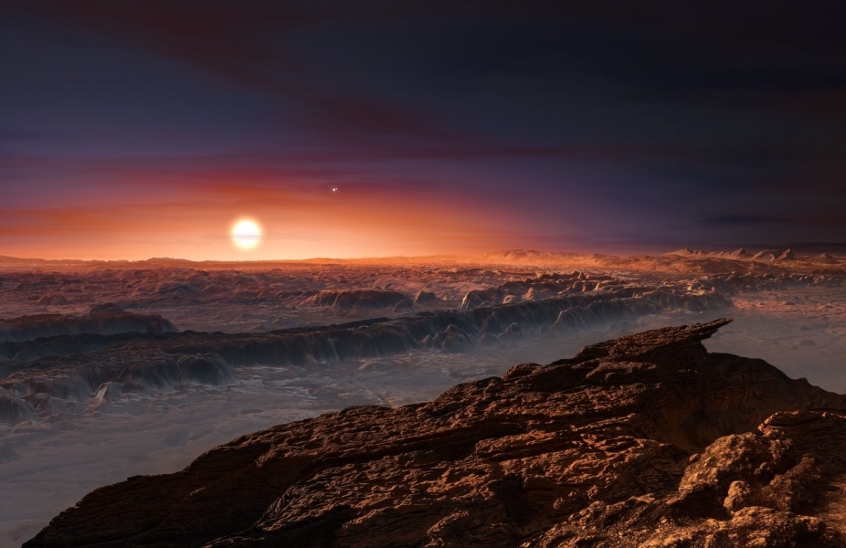
There's a planet circling our solar system's closest star, Proxima Centauri, and it's quite like the Earth except that it's orbiting a red dwarf and is vulnerable to violent solar flares.
For scientists it's amazing news, since Proxima is only down the road, astronomically speaking. Four light years is nothing, when you think of the size of the universe. It would still take thousands of years to get there, mind, and there's no immediate likelihood of anyone actually going. A more likely prospect is that tiny probes with laser-powered sails will be sent off, cutting the journey time to only 25 years (plus four years for the data to come back).
The science is one thing. What about the theology? Some Christians are adamant that there can't be life on other planets because Genesis doesn't mention it. That requires a particular view of Genesis, of course, and most Christians would say that it wasn't designed as a scientific textbook. We shall have to see: and the significance of the discovery of this new planet is that for the first time in history the prospect of being able to do so has opened up before us. If there's life out there, we might find it.
But will we? The fact that there's one Earth-sized planet doesn't mean that all the conditions necessary for life to evolve have occurred elsewhere, though in a universe this size they probably have. There may, on the other hand, not be very much of it. And there's always the nagging doubt: we are on the edge of the western spiral arm of the galaxy and other civilisations closer to the centre will have developed millions of years earlier than us. Why, if they exist, haven't they found us? Perhaps they are not there; or perhaps the distances are too great and the technology does not and never will exist.
It's a faintly depressing thought. For as long as I can remember I've been entranced by the speculations of the great science fiction masters. Isaac Asimov, Arthur C Clarke, Robert Heinlein, Ray Bradbury – these and countless others painted a picture of a universe that was vaster and more wonderful than ordinary imaginations could compass. And some of them wrote about God, too. Clarke did in The Nine Billion Names of God; CS Lewis did in his Out of the Silent Planet series and Walter Miller in A Canticle for Leibowitz. James Blish in A Case of Conscience explores the dilemma of a Jesuit who investigates an alien race which evolves through several forms through the course of its life cycle and which has no religion or any concept of God, an afterlife or sin. Should he try to convert them or not?
This thought that there might just be life on other worlds won't leave us alone. And for Christians that inevitably raises questions, like the one Blish addresses. If there's intelligent life, wouldn't it necessarily know morality? If it knows morality, wouldn't it know sin? And if it knows sin, wouldn't it need forgiveness and redemption? On little old earth, especially in our Judeo-Christian tradition, we understand this in terms of sacrifice. But a civilisation that's fundamentally different might not understand it that way at all. And how would they conceive of God? Would he be incarnate for them, and if so how?
For some Christians, questions like this might be pointless, or even blasphemous. But one of the things drawing back and taking a long look into deep space can do for the earthbound Christian is to make us realise how very small our vision is, and how very wound up we get about things that don't, cosmically speaking, really matter. And we have good biblical warrant for this spiritual star-gazing, too. The Psalmist invites us to consider God's heavens and our own insignificance (Psalm 8). The apostle Paul speaks of Christ as "one who fills all things in every way" (Ephesians 1:23) and as "the image of the invisible God, the firstborn over all creation", who is "before all things, and in him all things hold together" (Colossians 1:15,17).
We don't deal with the prospect of life on other planets by denying its possibility. We deal with it by expanding our understanding of the nature of God, who claims not just our world but our universe. It would be a pity if Christians were unable to match the soaring imaginations of all those science fiction writers, with their extraordinary ability to make us think the unthinkable and grasp the unimaginable.
Follow Mark Woods on Twitter: @RevMarkWoods













